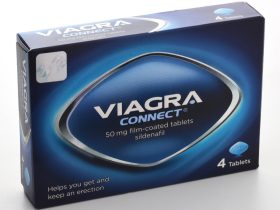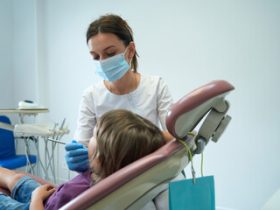Whenever we talk about bacteria, most people channel their minds toward the negative direction because bacteria are popularly known for causing major diseases and other complications. But do you know that they are “good bacteria” out there? Yes, that’s true, and these good bacteria are called “probiotics”. Doctors highly recommend it for optimum health. Probiotics are gaining more traction in health than ever before, and their hype proves their efficiency.
Due to the whole fuzz around probiotics, one may conclude that sticking strictly to a probiotic diet may be the best. But as we all know, anything that’s got an advantage surely has some disadvantages. This doesn’t mean probiotics are bad, but it doesn’t work like magic. Let’s look at what probiotics mean, their benefits and their health risks.
What Are Probiotics?
Probiotics are the “good bacteria” mostly found in foods and supplements. They are bacteria that help keep the gut healthy and our overall well-being. While talking about supplements, you can get them in capsules, tablets, powders and even Lozenges. Any form you need, you’ll get it.
Probiotics aid greatly in the digestive system. The digestive system contains both good and bad gut bacteria and needs always to be a balance between the two. Well, due to the poor food choices we make, overuse of antibiotics and other drugs, lack of sleep and other environmental factors, we cause an imbalance between the two forms of bacteria in our intestine. This gives the “bad bacteria” a heavy boost over the “good bacteria”. It is worthy to note that the digestive system comprises multiple types of microorganisms, all collectively called the microbiota or gut flora. Microorganisms contained here include yeast, viruses and bacteria being the majority. Vitamin K and even some B vitamins are produced in the microbiota.
What Do Probiotics do To the Microbiota
When there’s an optimal balance between the good and bad bacteria residing in the large intestine, our system derives multiple health benefits, from improved digestion to protection against other diseases. Being a “good bacteria”, when taken, fills the microbiota with health-enhancing microorganisms. Also, in the microbiota, probiotics manipulate the level of microbial activities, thereby reducing the growth of pathogens.
What Are The Benefits Of Probiotics On Health?
Probiotics pose as the good bacteria, which help eliminate most of the bad bacteria from the gut. These bad bacteria are often responsible for causing certain illnesses or inflammations in humans, and probiotics help by replacing these germs with good bacteria, providing better health. They are highly researched for their benefits to digestive health, with proof showing that probiotics can help treat antibiotic-associated diarrhoea. This diarrhoea occurs mainly in toddlers and children, and the high intake of antibiotics causes it. Antibiotics kill off the natural bacteria present in the gut, thereby leading to an imbalance in the number of good and bad bacteria found in the gut.
Also, probiotics effectively fight Irritable Bowel Syndrome (IBS), a common disorder that affects the large intestine. It is noticed by common symptoms like bloating, constipation, abdominal pain, gas, and cramping.
In addition, probiotics can be used to help fight Crohn’s Disease. Those suffering from this disease attest to the fact that the disease gets worse as the day goes by. Common symptoms include abdominal pain, fatigue, weight loss, and severe diarrhoea- all resulting from the inflammation of the digestives tract caused by the disease. This is a form of inflammatory Bowel Disease, and probiotics help reduce and eliminate the spread of the disease.
Research has shown that probiotics can even help counter ulcers and stomach ulcers. That’s a whole lot of benefits, you know.
Aside from the aforementioned conditions, probiotics are also good for the skin, vagina, urinary tract, gut, and lungs. Most persons consider them fit for treating urinary tract infections and yeast infections.
Now that we know the major benefits of adding probiotics to your diet, it’ll be appropriate for us to enlighten you more on the risks involved.
What Are The Risks Of Adding Probiotics To Your Diet?
Though these good bacteria are already present in the body, they’re considered safe for most persons. However, some potential risks need to be considered. These include;
- ALLERGY: Probiotics can cause an allergic reaction. They can cause stomach upset, diarrhoea, bloating, gas and even thirst. These symptoms are usually noticeable in the first few days of consumption because your body is trying to adjust to the ingestion of new “good bacteria” into the system. Symptoms like this normally leave the body when you get used to the probiotics.
- SEVERE INFECTIONS: People with a compromised immune system and HIV patients are advised to avoid any probiotic diet or supplement. Some illness has been linked to probiotics, mainly occurring in sick people or people who just had surgery. Also, people suffering from acute Pancreatitis are advised not to take probiotics as it increases the risk of death.
Always consult your doctor before consuming any probiotic product to avoid complications.
NOTE: For probiotics to be more effective in the system, it needs prebiotics. Prebiotics are dietary fibres that aid in fueling gut bacteria. The stomach cannot digest them, so they directly go to the intestine, serving as the perfect food for bacteria. The best prebiotic foods to add to your meal include; onions, bananas, oats, and cocoa.
Final Words
Without a doubt, probiotics uphold many advantages as they can advance a solid digestive system and lift your well-being. Yet, observing the likely downsides before adding them to your eating regimen is essential.
Probiotics are well known for their research, and they do extraordinary things; simply make certain to do your exploration and pick a great enhancement to ensure you come by the best outcomes.












